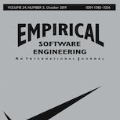Context: The overall scientific community is proposing measures to improve the reproducibility and replicability of experiments. Reproducibility is relatively easy to achieve. However, replicability is considerably more complex in both the sciences and Empirical Software Engineering (ESE). Several strategies, e.g., replication packages and families of experiments, have been proposed to improve replication in ESE, with limited success. We wonder whether the failures are due to some mismatch, i.e., the researchers' needs are not satisfied by the proposed replication procedures. Objectives: Find out how experimental researchers conduct \textit{experiments in practice}. Methods: We carried out an ethnography study within a SE Research Group. Our main activity was to observe/approach the experimental researchers in their day-to-day settings for two years. Their preferred literature and experimental materials were studied. We used individual and group interviews to gain understanding and examine unclear topics in-depth. Results: We have created conceptual and process models that represent how experimentation is really conducted in the Research Group. Models fit the community's procedures and terminology at a high level, but they become particular in their minute details. Conclusion: The actual experimental process differs from textbooks in several points, namely: (1) Number and diversity of activities, (2) existence of different roles, (3) the granularity of the concepts used by the roles, and (4) the viewpoints that different sub-areas or families of experiments have about the overall process.
翻译:整个科学界正在提出改进实验的可复制性和可复制性的措施。复制性相对而言比较容易实现。然而,在科学和实验软件工程(ESE)中,复制性要复杂得多。我们提出了几项战略,例如复制软件包和实验家庭等,以改进ESE的复制性,但成效有限。我们想知道失败的原因是否是由于某些不匹配,即研究人员的需要不为拟议的复制程序所满足。目标:找出实验研究人员如何在实践中进行Textit{exexperiments}。方法:我们在SE研究组中进行了族裔学研究。我们的主要活动是观察/处理实验研究人员的日常环境,为期两年。他们喜欢的文献和实验材料得到了研究。我们利用个人和团体访谈来深入了解和研究不明确的专题。结果:我们创建了概念和过程模型,这些模型代表了研究组如何真正进行实验。模型符合社区的程序和术语的高层次,但是在实验组中,它们的作用是特别不同的,在实验组中,其实际作用是不同的,其实际作用,其实际作用是不同的,其实际作用是:使用。





